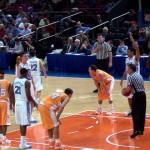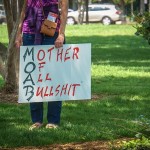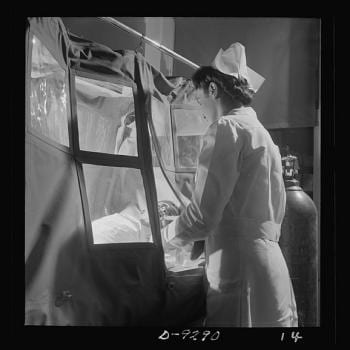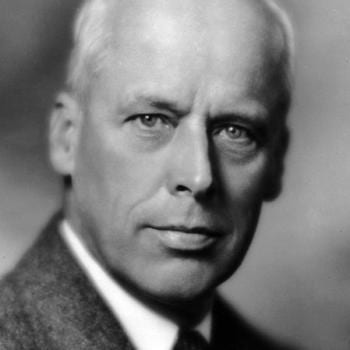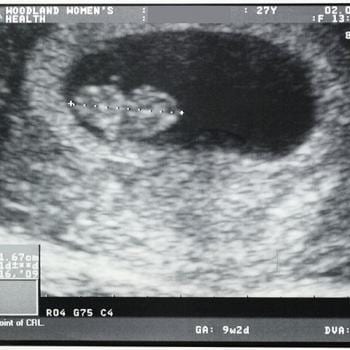The story of Peter’s denial of Christ, on Good Friday Eve (I hear some Christians refer to it as Maundy Thursday) has to be one of the most moving aside from the trial, beating, and death of Christ — a big exception. I often think of Peter as the yellow lab of the apostles, always eager to please his master, full of energy, remarkably naive, and so prone to get himself in a boatload of trouble, as all four evangelists record:
54 Then they seized him and led him away, bringing him into the high priest’s house, and Peter was following at a distance. 55 And when they had kindled a fire in the middle of the courtyard and sat down together, Peter sat down among them. 56 Then a servant girl, seeing him as he sat in the light and looking closely at him, said, “This man also was with him.” 57 But he denied it, saying, “Woman, I do not know him.” 58 And a little later someone else saw him and said, “You also are one of them.” But Peter said, “Man, I am not.” 59 And after an interval of about an hour still another insisted, saying, “Certainly this man also was with him, for he too is a Galilean.” 60 But Peter said, “Man, I do not know what you are talking about.” And immediately, while he was still speaking, the rooster crowed. 61 And the Lord turned and looked at Peter. And Peter remembered the saying of the Lord, how he had said to him, “Before the rooster crows today, you will deny me three times.” 62 And he went out and wept bitterly. (Luke 22)
Wow!
John Calvin’s commentary on the passage is poignant because it carries a warning for those whose eagerness for devotion can easily outrun the capacity of their sanctification:
Peter’s fall, which is here related, is a bright mirror of our weakness. In his repentance, also, a striking instance of the goodness and mercy of God is held out to us. This narrative, therefore, which relates to a single individual, contains a doctrine which may be applied to the whole Church, and which indeed is highly useful, both to instruct those who are standing to cherish anxiety and fear, and to comfort those who have fallen, by holding out to them the hope of pardon. And first it ought to be observed, that Peter acted inconsiderately, when he entered into the hall of the high priest. It was his duty, no doubt, to follow his Master; but having been warned that he would revolt, he ought rather to have concealed himself in some corner, so as not to expose himself to an occasion of sinning. Thus it frequently happens that believers, under an appearance of virtue, throw themselves within the reach of temptation.
It is therefore our duty to pray to the Lord to restrain and keep us by his Spirit, lest, going beyond our measure, we be immediately punished. We ought also to pray, whenever we commence any undertaking, that he may not permit us to fail in the midst of our efforts, or at the beginning of the work, but may supply us with strength from heaven till the end. Conviction of our weakness ought not, indeed, to be a reason for indolence, to prevent us from going wherever God calls us; but it ought to restrain our rashness, that we may not attempt any thing beyond our calling; and it ought also to stimulate us to prayer, that God, who has given us grace to begin well, may also continue to give us grace to persevere.
The gospel may set believers free. It also comes with a need to recognize limits.

